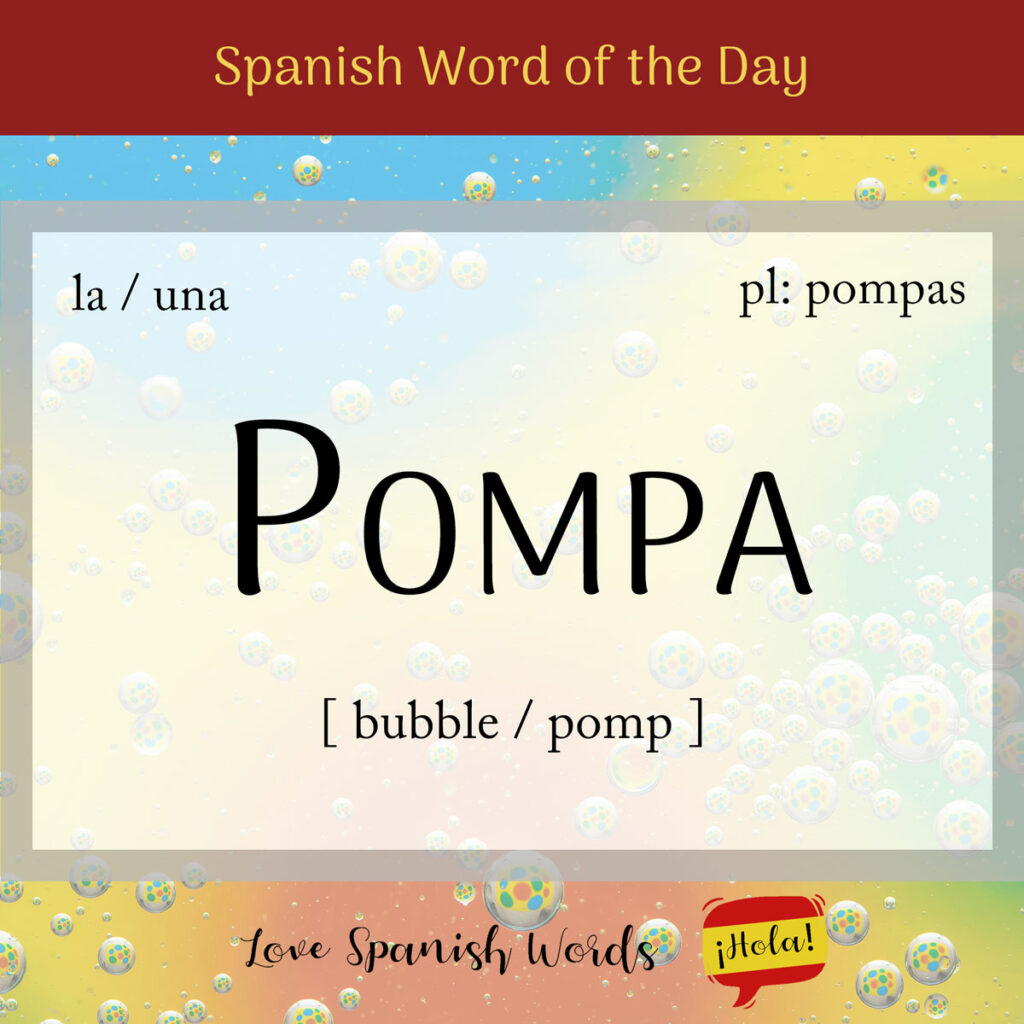The other day, my four-year-old son received a party bag filled with fun items, including a bubble tub. Unfortunately, he spilled all its contents on our carpet before we could even blow a single pompa (bubble). Such is life!
Latin American Pronunciation
European Pronunciation

The word pompa comes from the Latin pompa, which in turn derives from the Ancient Greek πομπή (pompḗ) meaning “solemn procession, pomp.” Because it is a feminine noun, it takes the following definite and indefinite articles:
- la pompa = the bubble
- las pompas = the bubbles
- una pompa = a bubble
- unas pompas = some bubbles

There is another word for bubble in Spanish which is burbuja. In Spain, burbujas are very small, such as the kind of bubbles that appear in a glass of champagne, while pompas are larger.
In some places in Latin America, burbuja tends to be used for both types of bubble, most likely because in this variety of Spanish, pompa is also a word for a butt cheek!
Burbuja also appears various figurative expressions relating to fortunate situations that are unlikely to last, such as a burbuja inmobiliaria (real estate bubble).
When used to talk about bubbles, it refers specifically to the kind formed by the introduction of air into a liquid, such as a pompa de jabón (soap bubble). It cannot be used to describe the kind of bubble blown with a piece of gum, which would be either burbuja or globo.
A los niños les encanta hacer pompas de jabón.
Children love to blow soap bubbles.
A bubble bath in Spanish is known as baño de espuma, with espuma meaning foam.

The second meaning for pompa, which more closely resembles its English equivalent in terms of spelling, is pomp, splendour or display. While this sense of the word might not come up often in everyday conversation, it’s useful to remember the word pompas fúnebres, which can refer to both a funeral ceremony and a funeral parlour.
María trabaja en unas pompas fúnebres.
Maria works in a funeral parlour.

